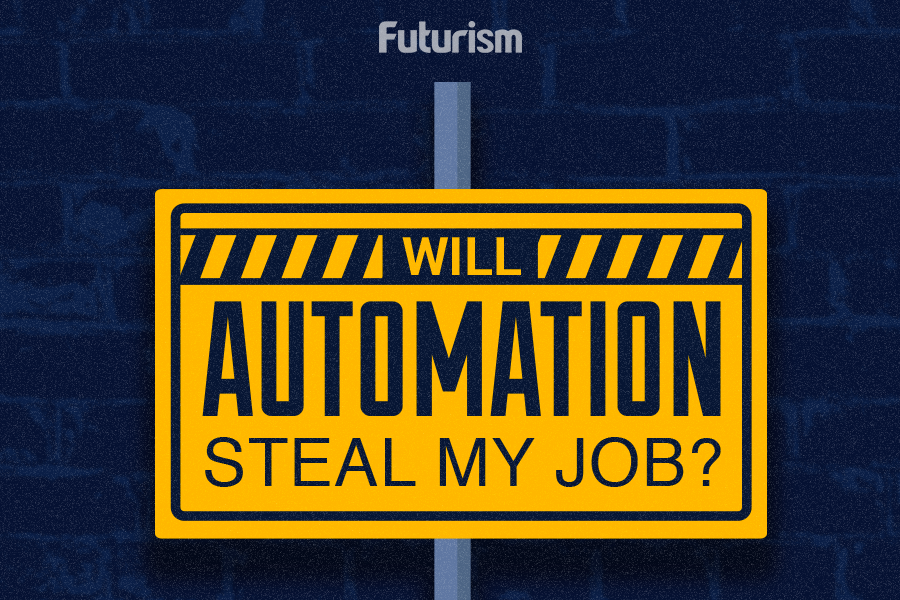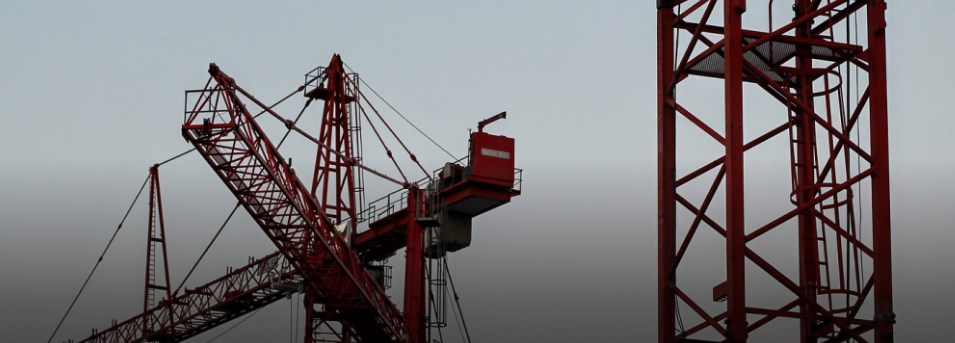Robots Are Preparing to Fill 200,000 Vacant Construction Jobs
Though many fear the unemployment that could follow the widespread adoption of automated systems, they could be a welcome addition to the construction industry, which currently suffers from a lack of workers and stagnant productivity levels.
[edit] READY FOR DISRUPTION
Automation has long been considered the harbinger of future unemployment, and experts have predicted that the widespread adoption of artificially intelligent (AI)software and smart machines could lead to thousands or even millions of people losing their jobs.
 Click to View Full Infographic
Click to View Full Infographic
However, that may not be the case in the construction industry. In fact, with a growing shortage in labor, it’s one sector that’s particularly well-suited for an automation takeover.
According to a report released by McKinsey & Company earlier this year, the world of construction suffers from productivity levels that haven’t really gone up much since 1945. The report also showed that 98 percent of huge construction projects end up going over budget and that the industry has proven resistant to technological upgrades. Furthermore, data from the Bureau of Labor Statistics shows that almost 200,000 construction jobs were unfilled in the United States alone as of February 2017.
To sum, a lingering inefficiency seems to plague the industry, and it could be remedied through the use of automated systems and machines.
[edit] NEW JOBS, BETTER LIVES
A number of AI-powered systems that could help alleviate the construction industry’s woes are currently in development. These include a mobile construction worker, as well as a mobile 3D-printer, both of which are capable of adjusting to their immediate environment. Almost always, these AI construction systems are able to finish their tasks more efficiently and quickly than their human counterparts, so construction seems to be a nice fit for automation.
Some critics are wary of this kind of intelligent automation because they view it as an attempt to replace human workers. While it’s true that automated systems might cause some unemployment, they could also lead to the creation of new jobs that we haven’t really needed before, such as providing maintenance for these automated systems.
Still others argue that automation, coupled with universal basic income (UBI), would free people to pursue other meaningful endeavors, such as content creation. This pairing could also give people time to learn more and to tackle larger issues, so before we dismiss automation as a negative, we must consider all possibilities.
References: Recode, U.S. Bureau of Labor Statistics, McKinsey & Company
Please find the original article here .
- Written by
Dom Galeon, Writer , Futurism
--Future of Construction 10:19, 30 Aug 2017 (BST)
Featured articles and news
Apprenticeships and the responsibility we share
Perspectives from the CIOB President as National Apprentice Week comes to a close.
The first line of defence against rain, wind and snow.
Building Safety recap January, 2026
What we missed at the end of last year, and at the start of this...
National Apprenticeship Week 2026, 9-15 Feb
Shining a light on the positive impacts for businesses, their apprentices and the wider economy alike.
Applications and benefits of acoustic flooring
From commercial to retail.
From solid to sprung and ribbed to raised.
Strengthening industry collaboration in Hong Kong
Hong Kong Institute of Construction and The Chartered Institute of Building sign Memorandum of Understanding.
A detailed description from the experts at Cornish Lime.
IHBC planning for growth with corporate plan development
Grow with the Institute by volunteering and CP25 consultation.
Connecting ambition and action for designers and specifiers.
Electrical skills gap deepens as apprenticeship starts fall despite surging demand says ECA.
Built environment bodies deepen joint action on EDI
B.E.Inclusive initiative agree next phase of joint equity, diversity and inclusion (EDI) action plan.
Recognising culture as key to sustainable economic growth
Creative UK Provocation paper: Culture as Growth Infrastructure.
Futurebuild and UK Construction Week London Unite
Creating the UK’s Built Environment Super Event and over 25 other key partnerships.
Welsh and Scottish 2026 elections
Manifestos for the built environment for upcoming same May day elections.
Advancing BIM education with a competency framework
“We don’t need people who can just draw in 3D. We need people who can think in data.”
























